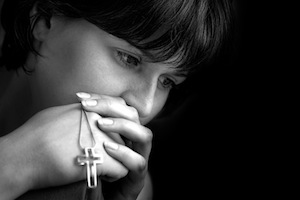Scrupulosity in OCD: Cognitive Distortions
This is the second installment of a multi-part series on Scrupulosity, a specific variation of Obsessive-Compulsive Disorder (OCD) that focuses on religious and moral perfectionism. This article focuses on how one can learn to identify and challenge common cognitive distortions seen in Scrupulosity. Please note that this article will focus exclusively on religiously-focused Scrupulosity, and that future installments will address Moral Scrupulosity.

Scrupulosity is a type of Obsessive Compulsive Disorder (OCD) rooted in irrational, distorted thoughts (obsessions) related to one’s religious beliefs, morals, or personal ethics. An individual with Scrupulosity experiences these unwanted thoughts as being at odds with their faith, their relationship with God, or their moral and ethical values.
As with all types of OCD, the individual with Scrupulosity responds to their obsessions with compulsive behaviors that they employ in an effort to reduce, eliminate, or reverse their unwanted thoughts and the anxiety they cause. Scrupulosity becomes a clinical issue when an individual’s behaviors are motivated by a desire to control anxiety rather than the pursuit of a genuine connection to their faith, morals, or ethics.





































































